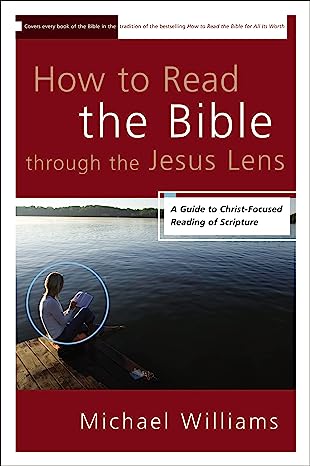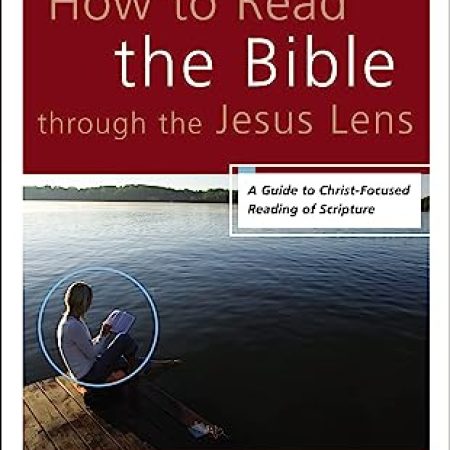
This is a book review with a difference, in that I am only, at least at this stage, reviewing a section of it. By way of explanation, I am privileged to be taking part in a blog tour for How to Read the Bible through the Jesus Lens by Michael Williams and published by Zondervan, in which different reviewers focus on one section or genre of the Scriptures.
The concept of the book is brilliant. Williams takes a look at every book of the Bible and attempts to highlight the Christocentric key to the whole of Scripture that lies in every part of the whole. It might seem a mammoth venture but he manages to deal with each book in no more than 4 pages, identifying in each what he sees as the ‘Theme of the Book’. In each chapter, as well as the Theme of the Book, Williams suggests a key verse(s) for memorisation, draws out some contemporary implications, asks some ‘Hook Questions’ to stimulate further thought and perhaps discussion, and shows how the book’s theme “ultimately finds its focus in Jesus Christ” (p10) At the end of the book there is a comprehensive chart bringing all these elements, for all 66 biblical books, together. It’s very impressive and clearly the result of a great deal of work. My designated genre is the Johannine Epistles so, to be honest, I only had 12 pages to study and digest, though I have taken a good look at the book as a whole.
When I teach homiletics, I teach my students to work on discovering and formulating the MTh (Main Theme) of the passage they are exegeting, stipulating that it must be both accurate (true) and adequate (all inclusive). It’s a vital discipline but can be tough evem with just a chapter or short section. How much more so with a whole book of the Bible! In the Letters of Johm, at least, Williams does an admirable job.
Williams sees the theme of 1 John as being “God calls those who believe in the divinity of the incarnate Christ to become like him”. Looking through the Jesus Lens, he shows how, in keeping with Romans 8:29, “Jesus is the perfect human to whom all believers are being divinely conformed.”
2 ad 3 John are summed up as being opposite attitudes to true and false teachers – don’t give false teachers hospitality (in 2 John) and the giving of hospitality is commended (in 3 John). Williams, looking through the Jesus Lens, draws a parallel to people’s reception or otherwise of Christ when he lived on earth.
Given the necessary conciseness of each chapter, it is obvious that Williams cannot say everything he might want to say, but all in all this is a book that I recommend very highly and will undoubtedly refer to over and over again.
Zondervan (1 Feb. 2012) Review written in 2012
